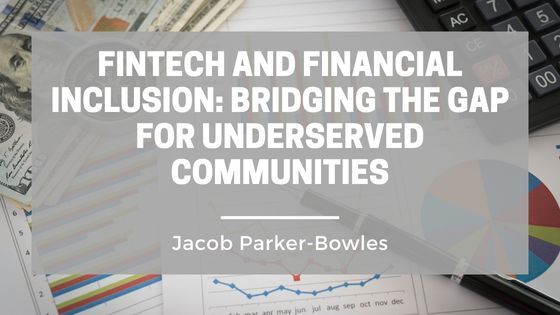In an increasingly digital world, financial technology, or fintech, has emerged as a powerful force for change, offering innovative solutions to longstanding challenges in the financial industry. One of the most significant impacts of fintech is its ability to promote financial inclusion by providing access to financial services and resources for underserved communities. In this blog post, we’ll explore the role of fintech in bridging the gap for underserved communities and promoting greater financial inclusion worldwide.
Understanding Financial Inclusion
Financial inclusion refers to the availability and accessibility of financial services and products to all segments of society, particularly those historically underserved or excluded from the traditional banking system. This includes individuals and communities who lack access to essential banking services such as savings accounts, credit, insurance, and payment systems.
Challenges to Financial Inclusion
Several factors contribute to the lack of financial inclusion for underserved communities, including:
- Limited Access to Banking Services: Many individuals in underserved communities live in remote or rural areas where traditional bank branches are scarce or nonexistent, making it difficult to access banking services.
- High Costs and Fees: Traditional banking services often come with high fees and minimum balance requirements, making them unaffordable for low-income individuals and families.
- Lack of Identification and Documentation: In many cases, individuals in underserved communities may lack the necessary identification or documentation to open a bank account or access financial services.
- Financial Literacy and Education: Limited financial literacy and awareness of banking products and services can also hinder financial inclusion, as individuals may need help understanding how to use or benefit from them.
The Role of Fintech in Promoting Financial Inclusion
Fintech has the potential to address many of the barriers to financial inclusion by leveraging technology to provide accessible, affordable, and user-friendly financial services. Here are some ways in which fintech is making a difference:
- Mobile Banking and Digital Wallets: Fintech companies are leveraging mobile technology to offer mobile banking apps and digital wallets that enable individuals to access banking services and make payments using their smartphones. This is particularly impactful in regions with limited access to traditional banking infrastructure.
- Microfinance and Peer-to-Peer Lending: Fintech platforms facilitate microfinance and peer-to-peer lending, allowing individuals and small businesses to access credit and capital outside the traditional banking system. This enables entrepreneurs and micro-entrepreneurs in underserved communities to invest in their businesses and improve their livelihoods.
- Blockchain and Cryptocurrency: Blockchain technology and cryptocurrency have the potential to revolutionize financial services by providing secure, transparent, and decentralized alternatives to traditional banking systems. Cryptocurrencies like Bitcoin and Ethereum can be used to transfer funds quickly and affordably across borders, enabling financial inclusion for unbanked populations.
- Financial Education and Literacy Tools: Fintech companies are developing innovative tools and resources to promote financial education and literacy, empowering individuals to make informed financial decisions. These tools include budgeting apps, savings calculators, and educational content to improve financial literacy and awareness.
Challenges and Opportunities
While fintech holds great promise for promoting financial inclusion, it also presents challenges and risks that must be addressed. These include concerns about data privacy and security, regulatory compliance, and the digital divide—the gap between those with access to digital technology and those without access.
Despite these challenges, fintech offers tremendous opportunities to expand access to financial services and resources for underserved communities worldwide. By leveraging technology, innovation, and collaboration, fintech companies, policymakers, and organizations can work together to bridge the gap and create a more inclusive and equitable financial system for all.
